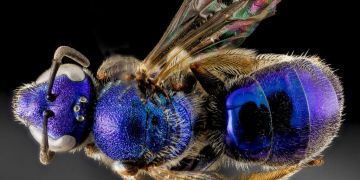Health benefits
It is thought to boost the immune system and help fight infection. It has been shown to increase the good bacteria in the gastrointestinal (GI) tract, which helps to treat ulcers, colitis, diverticulosis and Crohn's disease. It is also used to treat constipation, fibromyalgia, high blood pressure and high cholesterol. Chlorella has been used to treat cancer and also help protect the body from the effects of cancer radiation treatment.
The algae, which is a popular food supplement in Asia and has been used as energy-producing food for centuries, is often used to prevent or curb the spread of cancer, enhance immunity, promote a good balance of bacteria in the gut, and lower blood cholesterol. In Japan, it is traditionally used as a treatment for duodenal ulcers, gastritis, hypertension, diabetes, hypoglycemia, asthma, and constipation. More recently, it is has been touted as an effective therapy for elevated cholesterol levels, a prophylactic to ward of infections and, and adjunct treatment for cancer.
Chlorella is now used as an adjunct supplement during radiation treatment for cancer. Its abundance of chlorophyll is known to protect the body against ultraviolet radiation.
It is a nutrient-dense superfood that contains 60% protein, 18 amino acids (including all the essential amino acids), and various vitamins and minerals. One of its unique properties is a phytonutrient called CGF.
Active ingredients
Chlorella provides all of the dietary-essential amino acids in excellent ratios. It is also a reliable source of essential fatty acids that are required for many important biochemical functions, including hormone balance. Chlorella also contains high levels of chlorophyll, beta-carotene and RNA/DNA. More than 20 vitamins and minerals are found in chlorella, including iron, calcium, potassium, magnesium, phosphorous, pro-vitamin A, vitamins C, B1, B2, B2, B5, B6, B12, E and K, biotin, inositol, folic acid, plus vitamins C, E and K.
Cultivation
Although the algae grow naturally in fresh water, Chlorella destined for human consumption is generally cultivated outdoors in mineral-rich freshwater ponds under direct sunlight. The entire process from strain maintenance in the laboratory to harvesting of the final product is monitored by microbiologists to ensure optimal nutrient value and product purity. It is often combined with other natural green foods such as spirulina, wheat grass, barley greens, and sometimes seaweed.
Research
Chlorella has been the focus of many medical and scientific research projects. Based on very early research, it appears that chlorella may play a role in fibromyalgia, hypertension, or ulcerative colitis and has an effect on the immune system. More studies are needed to confirm initial findings.
Research conducted in Japan suggests that chlorella may have antitumour activity against breast cancer. However, its main use in cancer therapy is to help remove radioactive particles from the body after radiation treatment.
So far, the bulk of evidence for chlorella's long list of medicinal powers comes from animal studies. Studies in mice have shown that Chlorella vulgaris can protect against the development and spread of cancer, and other rodent studies have shown that it lowers cholesterol and helps organisms get rid of toxic chemicals, such as dioxins.





